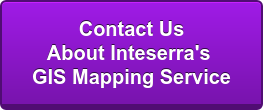 Today: Arkansas Opts In to FirstNet, FCC Eliminates Several ETC Annual Reporting Requirements, FCC Open Meeting Results for July
Today: Arkansas Opts In to FirstNet, FCC Eliminates Several ETC Annual Reporting Requirements, FCC Open Meeting Results for July
Arkansas Opts In to FirstNet
At the National Governors Association’s summer meeting, Gov. Asa Hutchinson of Arkansas announced his decision to join FirstNet. “I am excited to partner with FirstNet and AT&T to provide innovative communication technologies and tools that will help first responders protect communities and lives. This is a major step forward for the Arkansas public safety community, and I am proud that Arkansas is among the first states in the nation to opt in to this critical infrastructure project,” said Governor Asa Hutchinson.
FCC Eliminates Several ETC Annual Reporting Requirements
The FCC has eliminated several rules that are either duplicative of other reporting requirements or are no longer necessary. This will streamline the annual reporting requirements for ETCs that receive high-cost universal service support. Among other things, the FCC eliminated ETCs’ obligations to:
- include network outage reporting on their Annual Reports (Form 481);
- report the number of service requests they receive but do not fulfill;
- report the number of complaints per 1,000 subscribers for voice and broadband services;
- report annually information regarding the pricing of their voice and broadband service offerings; and
- certify compliance with applicable service quality standards and consumer protection rules.
In addition, and contingent upon USAC’s completion of the rollout of an online portal for recipients of high cost services, beginning in 2018 the FCC will no longer require ETCs to file duplicate copies of Form 481 with the FCC and with states, U.S. Territories, and/or Tribal governments.
FCC Open Meeting Results for July
At its July 13, 2017, Open Meeting, the FCC voted on a number of items, including the following:
- Robocalls: The FCC voted to open two Notices of Inquiry. The first Notice will seek comment on standards that will help differentiate legitimate phone calls from those that attempt to trick consumers through caller ID spoofing. Specifically, the FCC will explore ways to set up a reliable system to verify that a phone call is really coming from the phone number that it claims to be. The Notice asks legal, policy, and technological questions about call authentication frameworks. After the comment period, the FCC may move forward on further actions such as rulemakings. The second Notice seeks comment on the idea of creating a comprehensive resource of reassigned numbers that businesses and other robocallers, such as schools, can use to avoid accidentally calling numbers that are no longer used by the consumer that gave their consent to receive these calls. The FCC is asking for input on whether voice service providers should report when a number has been reassigned and how that data might be managed and utilized appropriately. This includes questions aimed at addressing privacy and security issues. After the comment period, the FCC may move forward on further actions such as rulemakings.
- Rural Call Completion: The FCC voted to open a new rulemaking that will solicit comment on new rules that would make long-distance providers accountable for the rural call completion performance of their intermediate providers. The notice also seeks comment on either eliminating or modifying the FCC’s current rural call completion data collection and reporting rules. TMI Briefing Service subscribers see Briefing dated 7/6/17.
- Slamming and Cramming: The FCC also voted to issue a Rulemaking to strengthen its slamming and cramming rules by prohibiting carriers from misrepresenting themselves when telemarketing to consumers and placing unauthorized charges on their phone bills. Other proposals being considered would require executing carriers to check directly with the consumer before switching an account to another carrier (rather than relying on that second carrier’s request for that change) and would prohibit carriers from adding third-party charges on a consumer’s phone bill unless the consumer expressly agrees to the charges.
_______________________________________________________________
The Regulatory Mix, TMI’s daily blog of telecom related regulatory activities, is a snapshot of PUC, FCC, legislative, and occasionally court issues that our regulatory monitoring team uncovers each day. Depending on their significance, some items may be the subject of a TMI Briefing.





